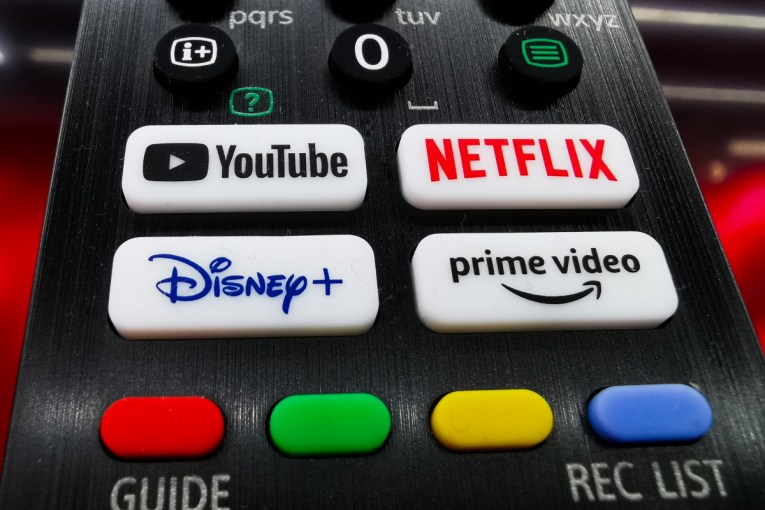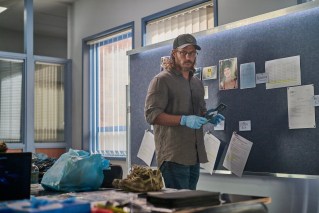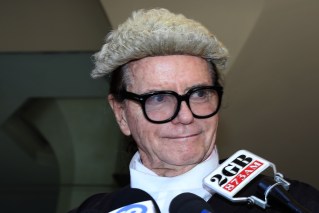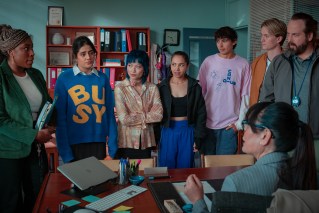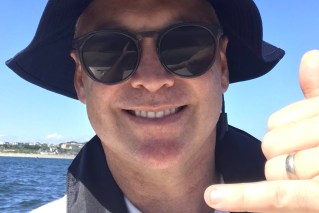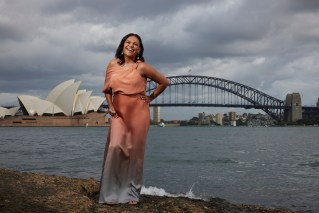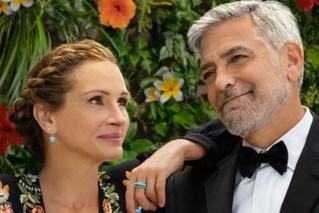Filthy Rich & Homeless: Doing it hard on the streets where they lived

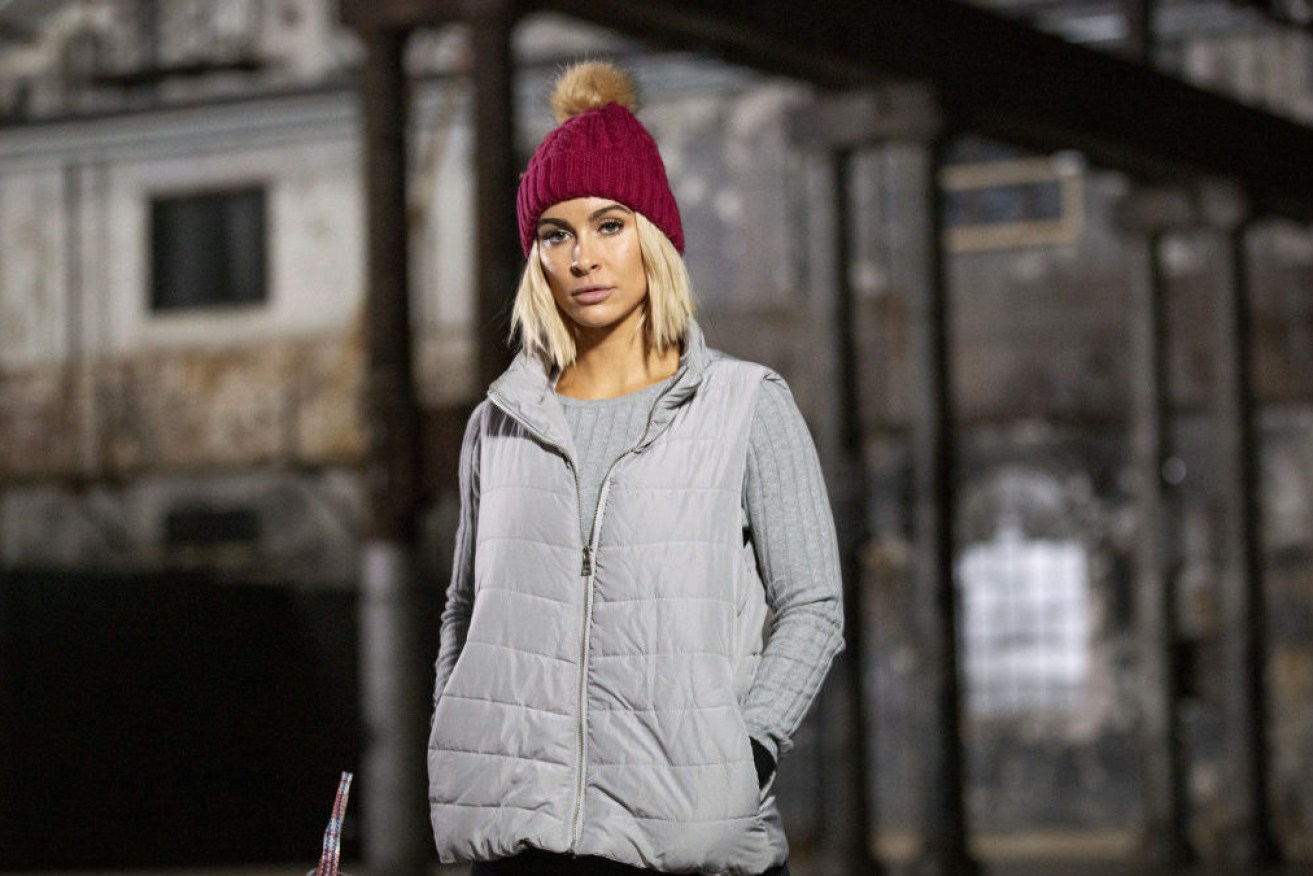
"Homelessness is something I’ve been conditioned to avoid my entire life," model and actress Ellie Gonsalves says. Photo: SBS
Spending one night in temporary boarding house accommodation was the moment that broke Ellie Gonsalves (Fighting with my Family) in the upcoming third season of reality TV series Filthy Rich & Homeless.
The Brisbane-born model and actress joined Melbourne’s Deputy Lord Mayor Arron Wood, Doctor Andrew Rochford, restaurateur Pauline Nguyen and comedian Ciaran Lyons on ten days living without their privilege, money, phones or their homes, joining some 116,000+ homeless Australians as of the 2016 Census.
Thinking a roof over her head would offer respite, Gonzales was back on the streets the next night because she felt safer camping in Hyde Park. The boarding house was filthy. Neither the bathroom, with its smashed-out windows, nor her bedroom were lockable. She shared the space with drunkenly aggressive men. Terrified, she sat sobbing on her bed, knowing how it could be perceived.
I didn’t want to come across as a princess.”
The moment almost didn’t make it onto our screens. Gonzales was trying to keep it together, but she forgot the cameraman could hear her mic 24/7. “He’s like, ‘I know this is so uncomfortable and you’re really upset. I don’t want to take advantage of your situation, but this is what people really need to see’.”
She agreed. “To hide that would have done such an injustice.”

Ellie Gonsalves, Arron Wood, Andrew Rochford, Pauline Nguyen and Ciaran Lyons pressed pause on their privileged lives for 10 days on the streets. Photo: SBS
Gonzales uses her considerable social media pull, with 1.3 million followers on Instagram alone, to support good causes. A global ambassador for Wildlife Warriors, “I’ve done a lot of stuff with mental health since my dad passed away from suicide,” she says. “But homelessness is something I’ve been conditioned to avoid my entire life.”
It was unbelievable to Gonzales that women, often fleeing domestic violence, were expected to shelter in squalor. “And by the way, these places are expensive. Just to know that that someone is ripping these people off, putting them in houses that are not looked after, but they’re more than happy to cram 10 people in there and take their money. It’s just not right.”
Later, in crisis accommodation, Gonzales spoke to several foreign nationals, with as much as 30 per cent of all homeless people being born overseas. “A lot of these women don’t have access to their passports, or they don’t have visas. They’ve lived in this country where their husbands have controlled them emotionally or physically.”
Meeting homeless trans woman Eden was deeply emotional for Gonzales. “It was honestly heartbreaking to see that someone as good and as generous as her, who just wants to be accepted, is so shunned socially.”
Gonzales came out as bisexual four years ago and it as a mostly positive experience. “I’ve never received so many supportive DMs in my entire life. I mean, there was some negativity, but Eden’s constantly grabbed, abused, yelled at, just spoken to like a piece of trash.”
While NSW experienced the largest increase in homelessness, up 37 per cent on 2011 according to the 2016 Census, Gonzales’ home state Queensland rose by 14 per cent. Wood’s home in Victoria was up 11 per cent. Sitting on City of Melbourne’s homeless advisory committee, he felt he was pretty across the numbers, but knew the reality would be eye-opening.
The thing that surprised him most was just how demoralising it was to ask for a coffee. “You feel absolutely second class,” he says.
You can see how all of these experiences combine to eat away any confidence you might have.
“And I was starting from a base that a lot of people on the street could only dream of. I can only imagine what it’s like for someone dealing with mental health and addiction issues, trauma, or domestic violence.”

Melbourne’s Deputy Lord Mayor Arron Wood (right) says the experienced hasn’t changed his mind about illegal begging. Photo: SBS
Begging is illegal in Melbourne, but despite his experience, Wood isn’t convinced that should change, and not just because of the bizarre occurrence of an organised Chinese begging ring last year.
“I thought I might say, ‘well, we should get rid of those anti-begging laws,’ but in real terms, you don’t want people who are engaging in aggressive or intimidatory behaviour to then take away from people who are really suffering, so it’s quite nuanced,” he says.
Instead, he says the focus has to be on getting as much support to as many people as possible. There is no one-size-fits-all solution. Even a huge cash injection by the Victorian state government to get rough sleepers into motels during the COVID crisis is complicated.
“You’re often dealing with highly complex issues like drug and alcohol addiction, and violence issues, and having them in the same place as people with less complex issues can present all sorts of issues,” Wood says.
There’s a dire need for more long-term addiction and mental health services in conjunction with a massive social housing build, he says.
Even if it weren’t a moral imperative, tackling homelessness makes sense on so many levels, Wood stresses. “For every dollar you spend on housing someone, they return $3 in community benefit, because you’ve got fewer medical presentations, fewer domestic violence issues, fewer police interactions, so many things which end up costing the taxpayer anyway.”
He hopes that Australia can come together on this. “I think the will is there. There’s all sorts of different views, I’ll never shy away from that, but the vast majority of people think this not good enough and it’s time for governments to catch up.”
Gonzales agrees.
It’s a problem we really can’t keep ignoring.”
She hopes her social media following will help engage audiences that might not otherwise engage with Filthy Rich & Homeless. “With everything that’s been going on with the George Floyd situation in America, it goes to show that sometimes it takes pretty drastic things to happen to create change within society.’
The same is true of COVID, she says. “People are facing homelessness now more than ever. So if the show encourages people to get involved in some way, whether it’s donating money or their time, that’s the first amazing steps we can all take.”
Filthy Rich & Homeless screens on SBS at 8.30pm on June 9, 10 and 11
